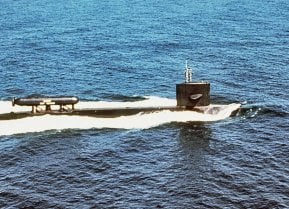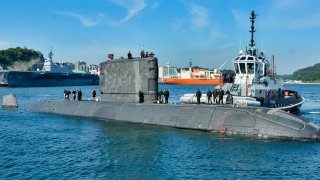NATO Has a Canada Problem
Canada’s continued underinvestment leaves its NATO obligations unmet and weakens the overall defense of both the alliance as a whole and the North American continent. Canadians deserve better
NATO members in Western Europe have drawn a torrent of criticism in recent years for failing to spend enough on defense and take their own national security seriously. It’s a fair charge, despite some recent improvements. Yet, one of the least responsible NATO members isn’t in Europe at all. It’s Prime Minister Justin Trudeau’s Canada.
In 2014, NATO members committed to a defense spending guideline of 2 percent of GDP. At the time, only three allies met this target. However, since Russia invaded Ukraine, many NATO countries have accelerated their commitments to increase defense spending, and most NATO members now hit this spending goal.
The Canadian government, however, is one of the few NATO allies that fails to meet the 2 percent defense expenditure threshold.
Canada isn’t a small country, nor is it a poor one. It’s perfectly capable of meeting its treaty obligations. Yet it spends a mere 1.37 percent of its GDP on defense, or roughly $30.5 billion a year. Despite having the sixth largest GDP among NATO countries, Canada ranks twenty-seventh in defense spending as a proportion of GDP. For comparison, the United States is the third-highest NATO member ranked in percentage of GDP (3.38 percent), behind only Poland and Estonia.
Canada is more than capable of meeting its obligations and has done so before. During the Cold War, Canada was a hugely capable NATO member whose contributions to deterring the Soviet Union were absolutely critical to hemispheric security.
The need to spend more on defense is particularly salient for Canada, as threats to NATO don’t only come from Eastern Europe. Canada also needs to take Arctic and North American security far more seriously as the Arctic emerges as a critical area of concern, rich in untapped resources and new navigation routes that are attracting attention from our adversaries.
China and Russia are actively increasing their presence in the Northern Pacific Ocean as they seek to expand into the Arctic. In late September, officials from both nations convened to form a “comprehensive strategic partnership” aimed at advancing their initiatives in the region. China describes itself as a “near Arctic” state (despite being nowhere near the Arctic) and has stated its intent to build a “Polar Silk Road.”
On September 28, the U.S. Coast Guard spotted Chinese and Russian coast guard ships near St. Lawrence Island in the Bering Sea, just south of the Arctic Circle. With increasing “near Arctic” encounters, Canada must bolster its defense against potential incursions from China and Russia along the Arctic coastline and not rely on the United States for Arctic security.
As Canadian Senator Pierre-Hugues Boisvenu put it:
“We can no longer ignore the threats to our sovereignty…Foreign powers are already testing our resolve, whether in the air through spy balloons or on the water through monitoring buoys. We are too dependent on the United States for Arctic defence—we must live up to our responsibilities as a northern country.”
Prime Minister Justin Trudeau has announced plans to reach NATO’s 2 percent defense spending target. Yet these plans won’t have Canada hitting the target until 2032. This eight-year timeline is far too slow. No other NATO ally has submitted such a lackluster plan.
Trudeau’s priorities appear to lie elsewhere. His priorities for the Ministry of Defense have been to “build an inclusive and diverse” defense team, prioritizing the elimination of “anti-Black racism, LGBTQ2 prejudice, gender bias and white supremacy.” Prime Minister Trudeau would have done better to spend Canadian resources to strengthen Canada’s military readiness and ensure Canada could defend itself and its allies.
Canada’s continued underinvestment leaves its NATO obligations unmet and weakens the overall defense of both the alliance as a whole and the North American continent. Canadians deserve better.
About the Authors:
Wilson Beaver is a defense policy advisor in the Allison Center for National Security at The Heritage Foundation. Find him on X: @WilsonCBeaver.
Elizabeth Tarr is a Fall 2024 Member of Heritage’s Young Leaders Program.
Image: Creative Commons.


